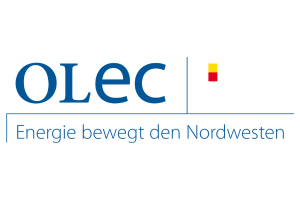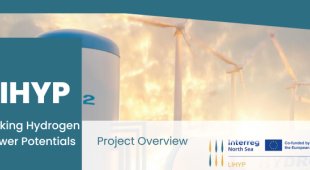LIHYP in a Nutshell
LIHYP brings hydrogen demand-supply and stakeholders together and raises potential for future aligned collaboration. The project initiates opportunities to accelerate market introduction of hydrogen applications, leading to regional hydrogen value chains connected in the North Sea Region. The project will realise different pilots for the use of hydrogen such as hydrogen cargo bikes, hydrogen driven freight train, hydrogen bus station and living labs in the Netherlands, Belgium, Denmark, France and Germany. A North Sea Region hydrogen platform marketplace will be held up for linking relevant stakeholders and a solid database for demand, production and supply of hydrogen will be created. Different Roadmaps for business modelling will help entrepreneurs, investors and public authorities to plan hydrogen in the North Sea Region. Together all partners will take first steps for cross-border system integration for hydrogen infrastructures, harmonization and standardization.
LIHYP will realise
- A North Sea Region H2 platform-marketplace linking H2 relevant stakeholders.
- Data mining for demand, production and supply of H2 from now till 2030.
- Steps towards managing shortages and surpluses of H2 production.
- Steps to system integration for H2 infrastructures, harmonisation and standardization.
- Promote incentivs for H2, contribute to level playing field with fossil fuels.
- Commit LIHYP partners and her associates (about 2000 SMES) to Fit-for-55 targets by drawing up and communicate local-regional-NSR(H2) roadmaps/strategy plans till 2030, based on predictive data analysis.
- Entrepreneurs, investors and public authorities using roadmaps for business modelling to plan NSR investments and capacities.
- H2 demonstrators to learn from, showcase and promote H2 applications.
LIHYP Partnership
The project consortium consists of companies and institutions from Belgium, Denmark, France, Germany and the Netherlands.
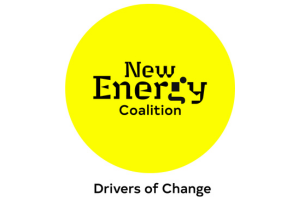
About Us
New Energy Coalition is a continuously growing network of knowledge institutions, businesses, government bodies and ngo’s working together to accelerate the energy transition for a sustainable future. Our coalition – with some 150 partners – connects the knowledge, experience, innovation and willpower of companies, government bodies, NGOs and knowledge institutions. Together we take up the challenge. From training young people and energy professionals to energy research and concrete energy projects. We actively share our knowledge with others. So that everyone can benefit.
Our role in the project
New Energy Coalition is the lead partner and coördinator responsible for managing the LIHYP project. This includes the execution and organisation of the project while communicating and liasing with project partners and stakeholders. New Energy Coalition is also the work package 2 leader which includes the coordination and development of 6 hydrogen pilots which will be introduced to demonstrate the feasibility and acceleration of hydrogen use within local systems, namely within the mobility sector.
Our vision for the hydrogen economy of the future
New Energy Coaltion has the vision to become one of the key organizations that supports the adoption of hydrogen along the North Sea corridor and beyond. This is the main reason why New Energy Coalition became the architect of the HEAVENN project, the first Hydrogen Valley in Europe, and why New Energy Coalition supports and promotes European hydrogen initiatives. The LIHYP project will enable us to develop more Hydrogen Valleys in the North Sea Region and connect them with one another.

About us
The German partner aconium accompanies the public sector when aiming to realise projects in the fields of digitalisation, energy, mobility and education. We bring municipalities, regions and companies together and jointly develop the infrastructure of the future. Strengthening rural areas is one focus of our work. Together with German and European partners, we work in funding projects to enhance the digitalisation of rural areas, to develop smart mobility concepts for cities and regions or intelligent strategies that promote the transition from fossil to renewable energy sources.
Our role in the project
aconium has been a partner in various European and national projects to promote sustainable transport and energy efficiency. Some of these initiatives supported the introduction of H2 mobility in all EU regions and led to the mapping of existing H2 networks. Within LIHYP, aconium fosters the regional development of an H2 network, drawing on a present mesh of business and public actors. By this we support capacity building for LIHYP, contribute to sustainable project success and promote the projects results. aconium will furthermore be involved in project activities related to the emerging H2 NSR platform marketplace and the interregional H2 Dynamic Roadmaps, working closely with the project partners.
Our vision for the hydrogen economy of the future
Our vision for a hydrogen economy of the future is an energy infrastructure, where low-carbon hydrogen is used to decarbonize critical industries, transportation and the built environment. A wide application of hydrogen is possible, if sufficient clean water sources can be utilised, transported and stored as well as green hydrogen and electrolyser costs decrease with economics of scale. Sustainable flood retention basins and pipelines will play a role in collecting, storing and transporting water. Pipelines, trucks and ships will transport hydrogen. A water availability atlas should supplement a European hydrogen atlas, supporting regional development of a hydrogen network and building capacity to link hydrogen power potentials.
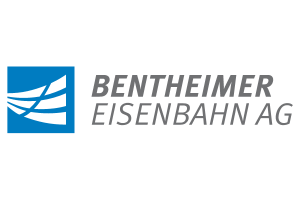
About us
The Bentheimer Eisenbahn AG operates local rail passenger transport, rail freight transport and workshop services. More than 400 employees work for Bentheimer Eisenbahn AG throughout the Group. The subsidiary BE Netz GmbH is responsible for the local rail infrastructure. The subsidiary Nutzfahrzeuge GmbH Nordhorn operates local bus transports. The subsidiary Kraftverkehr Emsland GmbH offers forwarding and logistics services. The subsidiary GPM GmbH manages parking spaces. The subsidiary Reisebüro Berndt GmbH operates 10 travel agencies.
Our role in the project
Bentheimer Eisenbahn AG will conduct a feasibility study on how a previously diesel-powered freight train can be replaced by a hydrogen-powered freight train. The focus will be on a route in the border regions of Grafschaft Bentheim and Drenthe. Part of this feasibility study will be an economic and a technical study. The technical study should clarify the possibilities and requirements for the introduction of hydrogen-powered freight trains. The economic study should show the cost differences between a conventional train and a hydrogen train. Finally, we want to describe optimization potentials and make recommendations for the implementation of such a project. The feasibility study will be presented at an event at the Bentheimer Eisenhahn AG.
Our vision for the hydrogen economy of the future
We want to enable sustainable transportation in the region and therefore further expand emission-free transportation options. For future transportation, we are focusing on drives with electromobility, hydrogen and synthetic fuels. We see the use of hydrogen as having the potential to make better use of the fluctuations in yield from the wind turbines in our region and neighboring regions. Especially as electricity generation from wind turbines will continue to increase in the future. We also hope that the purchase of regionally produced hydrogen will strengthen the economic situation of our region as well as that of our neighboring regions and that we can reduce our dependence on non-EU countries.
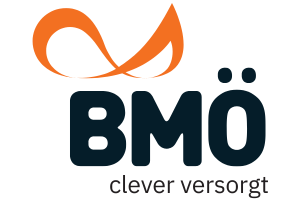
About us
Bremen Mineraloelhandel GmbH is a flexible medium-sized company with many years of experience in energy trading, and we know the diverse requirements of our customers. With our regional presence, we are the first point of contact on site for many commercial enterprises, farmers, private households and retailers. We supply our customers with energy sources and lubricants of a defined high quality and operate a large network of petrol stations. In addition to our Shell petrol stations, we also operate petrol and stations under our own brand with innovative products and good service.
Our role in the project
We will be instrumental in shaping the pilot in Oldenburg. The design of a new mobility concept for the inner-city area will test the implementation of a delivery concept using cargo bikes. The use of green hydrogen for this application will be tested with a fuel cell cargo bike. This should lead to the development of markets and business models with sales opportunities for green hydrogen.
BMÖ will take over the design of one of the pilots in the project in Oldenburg in WP2 with the vehicle and will provide material for the field test and a cargo bike for the logistics center operator. In addition, the supply of hydrogen will be provided. The supply and evaluation of the pilot will be technically designed in cooperation with DLR and supported in communication by OLEC.
Our vision for the hydrogen economy of the future
The motivation for this project is to open up new business areas with green hydrogen and to establish new supply chains and routes for the future energy supply of the urban area. The procurement of future energies on the basis of renewable energies is an opportunity for the economic development of the company and the opening up of new markets. Hydrogen will play a major role in the transition to a green economy and our company is willing to drive this change.
Hydrogen can open up new supply paths in various energy applications and thus make a relevant contribution to the decarbonisation of supply chains all the way to the customer.
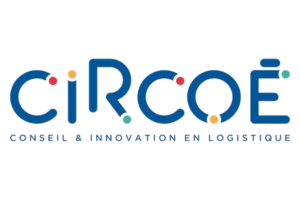
About us
CIRCOÉ is an innovation and technologies transfer centre created in 1992 in Le Havre, France, which specialises in Transports and Logistics. We aim at stimulating economic development by bringing innovation to logistics, we help companies to optimize their logistic processes and implement innovative tools to develop innovative logitics organisations. We offer our services to companies, industries and European projects.
Our role in the project
CIRCOE is the leader of the French pilot. We will draft a feasibility study covering the regional hydrogen chain from producer to end-user involving key stakeholders and clusters such as Logistique Seine Normandy (LSN) based in Normandy. It will work on a Business model based on incentives, barriers and future evolution of regulations in the region, to collect and optimise the Data which will feed the platform. CIRCOE will propose a roadmap with future projections in the region and organise communication activities with its partners to promote LIHYP. project.projectogrowing need for hydrogen.
Our vision of the hydrogen economy of the future
H2 is part of the solution for the green energy transition but still faces a few challenges (boil-off problem, explosion risks, cost, bunkering, storage…) which slow down its development. There is a need for authorities’ incentives at a time when the high cost of H2 jeopardizes investments plans and when the momentum behind the growth of the H2 sector is soaring. Other solutions involving H2 are explored such as e-fuel, a synthetic fuel combining CO2 from the atmosphere and H2 produced by electrolysis. However, H2 milestones are crossed; the Mercedes-Benz GenH2 produced by Daimler Truck, has crossed the symbolic 1,000-km mark with a full tank of liquid H2.
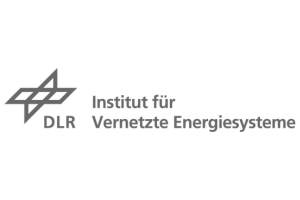
About us
The DLR Institute of Networked Energy Systems is an institute of the German Aerospace Center. The institute is dedicated to system-oriented issues concerning the intelligent and effcient linking of the electricity, heat and mobility sectors based on renewable energies. The Department of Urban and Building Technologies works on the system-serving design and integration of innovative individual technologies and components. The focus of the work is on researching and developing prototypes and technology concepts in order to supply highly urbanized regions with hydrogen energy in the future.
Our role in the project
The DLR is one of the three project partners involved in the pilot "Development of a local energy hub for city cargo". The DLR will support this pilot with its large experience and knowledge on hydrogen infrastructure to install and operate a refilling hub for E-cargo bikes equipped with a fuel-cell range extender system. In addition the DLR will contribute with its technical knowledge in order to develop a guideline for handling hydrogen as a fuel with sufficient quality and a practical description to make international hydrogen trading applicable.
Our vision for the hydrogen economy of the future
Hydrogen will play one of the main roles in the future energy system based on renewable energy sources since it is possible to produce hydrogen climate-neutral using electrolysis with renewable energy. In addition, hydrogen might be stored and can be transported allowing a flexible application whenever needed. Transport equipment and machinery in industry will increasingly utilize hydrogen as energy source for their operation. These advantageous properties provide a good basis for establishing a green hydrogen economy in the future.
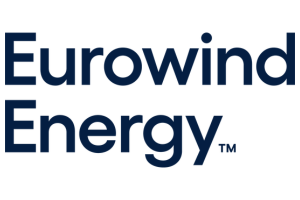
About us
Eurowind Energy covers the entire value chain within renewable energy by developing, constructing and operating energy parks. The company was founded on competences within wind power, but has since expanded the scope to solar PV, biogas, PtX and district heating. Eurowind Energy is headquartered in Hobro, Denmark, and the Group has 525 employees in 16 markets in Europe and USA.
Our role in the project
Eurowind Energy will play an important role in LIHYP by conducting a techno-economic study of a Hydrogen Refueling Station (HRS) connected to renewable energy sources. Our focus includes optimizing electrolysis plant designs, ensuring alignment with customer needs, and integrating the HRS system efficiently. Key activities involve defining techno-economic specifications, conducting thorough stakeholder studies, and ensuring seamless system integration. We aim to advance the sustainable use of hydrogen while contributing expertise to create an eco-friendly, economically viable HRS infrastructure.
Our vision for the hydrogen economy of the future
In our vision of the hydrogen economy of the future, we see a world where clean and sustainable hydrogen is a key driver of the energy transition. Hydrogen, produced from renewable sources, will substitute fossil hydrogen, power the transport sector, and be used as a feedstock or as an energy carrier in various industries, ultimately reducing carbon emissions. Our vision also includes the development of advanced energy storage solutions, where excess renewable energy is converted into hydrogen during periods of oversupply and later used during high-demand periods. This ensures grid stability and reliable energy supply. Eurowind Energy spearheads innovative projects, accelerating the shift to a hydrogen-based energy system for a cleaner, prosperous future.
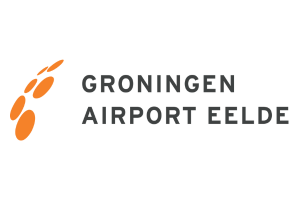
About us
Groningen Airport Eelde is a regional airport in the Netherlands and serves as an important testing ground for the (sustainable) aviation industry. As a testing ground, Groningen Airport Eelde offers a unique environment for the development and validation of innovative aviation solutions. The airport actively seeks partnerships and initiatives that can contribute to the advancement of sustainable aviation practices. It focuses on various application areas, including unmanned aviation, green energy production and storage, zero-emission ground operation, refueling infrastructure for electric and hydrogen-powered aircrafts and sustainable aviation fuels.
Our role in the project
Within LIHYP, Groningen Airport Eelde is set to conduct three comprehensive studies, including strategies to incentivize local businesses for hydrogen fuel adoption, the development of a versatile hydrogen multi-tool, and an in-depth analysis of the implications that hydrogen ground support equipment (GSE) will have on airport operations. Parallel to this, the University of Groningen will undertake a logistical study aimed at designing an efficient hydrogen ecosystem. This study will explore the optimal design parameters necessary to establish a sustainable and effective hydrogen fuel infrastructure.
Our vision for the hydrogen economy of the future
The airport aims to develop hydrogen ecosystem includes green hydrogen production, distribution, and use. The starting point is the existing 22 MW solar park, the largest airside solar park at an operational commercial airport. The electricity generated will be used to produce hydrogen. The hydrogen is then distributed to a hydrogen refueling station serving both land- and airside vehicles. Looking toward 2035, the airport's vision is to scale this model significantly, aiming to supply hydrogen directly to aircraft. By doing so it will dramatically reducing carbon emissions and paving the way for a new era of clean air travel.
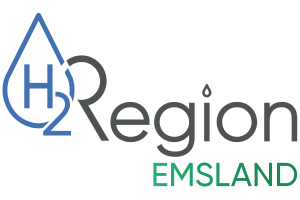
About us
The H2-Region Emsland is the association of hydrogen players in the Emsland region. It is the point of contact for topics relating to hydrogen technology and an open dialogue platform for regional companies. Local industrial companies, numerous small and medium-sized enterprises in the region, research institutions, initiatives and also representatives of the public sector are organised in the network. Participation in the network is open to all regional players and interested parties. The H2-Region Emsland is supported by the district of Emsland and the town of Lingen.
Our role in the project
We are responsible for the management of the first work package (WP1), which deals with the development of a transnational NSR platform. The aim is to create a platform-marketplace linking H2 relevant stakeholders. We are also involved in the fourth work package (WP4) and support the project 'Hydrogen driven freight train in the cross-border region DE/NL'. As a border region, we are hoping for closer links with other NSR partners, new impetus, knowledge transfer and the development of interregional value chains. We see the platform as a means of achieving this.
Our vision for the hydrogen economy of the future
We can see that the ramp-up of an industrial hydrogen economy is imminent. If this industrial part is supplemented by decentralised projects and regional value chains, not only SMEs but the entire energy system will benefit. Hydrogen can make a massive contribution to an emission-free world by 2045. The EU can and must strive for a leading technological role. The NSR region plays a central part in this.

About us
At Hydrogen Valley, we are dedicated to advance the adoption of green hydrogen and accelerate PtX projects from production to offtake. We partake in numerous innovation projects with both local and global partners across the whole value chain and we are trusted partner to companies tapping into the green transition.
Since 2007, we have partaken in numerous flagship projects for revolutionary demonstrations of hydrogen production and clean technologies contributive to green transitions. We reside in Cemtec a business park, located in Hobro, not far from HyBalance, Denmarks first hydrogen plant.
Our role in the project
With our participation in LIHYP, we look forward to contributing to the development of European regional roadmaps towards an established hydrogen market across national borders. From Hydrogen Valley's side, we will, among other things, map the regulatory barriers for hydrogen for heavy transport. And together with Eurowind, we will jointly look at the possibilities of coupling wind/solar with electrolysis and possible hydrogen filling station (HRS) around Handest Hede. Also, we will make sure to bring in our knowhow from related projects, e.g. Grønn Jyllandskorridor.
Our vision for the hydrogen economy of the future
Current national and international goals on decarbonization implies a transformation of our energy system at a speed never seen before. Scaling across the PtX value chain from energy production, key technologies to end use scenarios challenge market players, and to navigate it is a challenge associated with both uncertainty and opportunity. We need seamless and efficient collaboration across value chain stakeholder and national borders to align, accelerate by pilots and build infrastructures in place supportive.
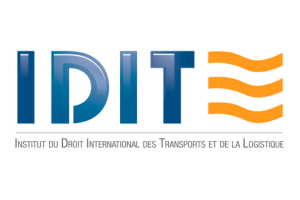
About us
Founded in 1969, the Institute of International Law for Transport and Logistic - IDIT, specialises in law research regarding transport, logistics and new energy, both nationally and internationally. Our expertise covers all modes of transport: road, rail and river transport, maritime transport, air transport, insurance, logistics and urban mobility. IDIT is involved in European collaborative research projects and the development of innovative solutions. The institute provides an expert view on regulatory frameworks and legal feasibility of deploying solutions.
Our role in the project
IDIT will participate in identifying and analysing the existing policies and proposing regulatory recommendations to facilitate the development of the hydrogen market in the North Sea Region. Together with partners, IDIT will draw necessary regulatory guidelines for European trade and distribution of green hydrogen. The goal is the identification of regulatory barriers and the creation of awareness for harmonization. The institute will also support the pilots with inputs from data collection and interview with relevant stakeholders. Preventing the policy impact on pilots' realization or help preparing to face them. We will participate with the dissemination and mainstreaming events on legal frameworks. Our institute will develop publication on findings within the project.
Our vision for the hydrogen economy of the future
According to the EU Hydrogen Strategy for a climate-neutral Europe (2020), starting in 2030 and 2050, renewable hydrogen technologies should reach maturity and be deployed on a large scale to reach all the sectors that have been difficult to decarbonise up to now. Our Institute is proud to be involved in this innovation European project related to the energy transition and hydrogen. It is an opportunity to collaborate with relevant stakeholders (policy makers, research institutions, industry etc) that are all working together for the development of the green hydrogen economy. The goal is to support and facilitate the evolution of the transition energy along the North Sea corridor with the ambition to build an harmonized international hydrogen market.
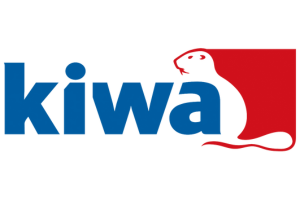
About us
Through years of experience and innovative power, Kiwa Technology gives substance to an extensive portfolio of sustainable energy solutions. Innovative and future-proof solutions make Kiwa an indispensable knowledge partner in the energy transition. At Kiwa we contribute to sustainability and the energy transition every day. It is extremely important to seek cooperation with other parties, nationally and internationally. We are proud to be a partner in this project and to be one step further in this way.
Our role in the project
One of Kiwa's goals is to help accelerate the energy transition. To achieve this, Kiwa experts are involved in various initiatives that contribute to achieving the Fit for 55 goals.
Kiwa's role is to take inventory of the knowledge and expertise present around various projects, pilots and the laws and regulations. This knowledge will be contributed and used in LIHYP's WP3. The aim is to identify European, National and Regional differences in terms of laws and regulations, policy targets, initiatives and roadmaps. The legislative impact can be used for the further development of the roadmap within LIHYP.
Our vision for the hydrogen economy of the future
Technological developments are accelerating to enable the energy transition, with hydrogen being a vital carrier. Technologies and materials behind these developments must meet many requirements in order to be successfully implemented. Thorough analyses and tests in terms of quality and feasibility, but also the safety and risks of these developments is therefore indispensable.
Kiwa is pioneering new possibilities for energy generation, storage, distribution and use. Not only when it comes to new solutions, but also in relation to existing applications. For example, research is being conducted into how surplus energy can be converted into hydrogen and how it can be transported via the existing gas pipeline network. To support this research, Kiwa can dispose of a high-quality laboratory.
About us
OLEC ist the largest cross-technology energy network in North-West Germany. With over 60 Members we create, support and promote the Energy Transition in Lower Saxony and cross-border. Our main goal is linking and collaborating with all stakeholders to built a climate neutral energy system, fasten up the mobility turnaround, help creating a green hydrogen economy, promote innovations for heat in buildings and urban neighbourhoods and digital applications for the energy industry. Let's work together for a sustainable future.
Our role in the Project
Together with the lead partner, the New Energy Coalition, we are organising the public relations work for the project, supporting the organisation and implementation of events and workshops and coordinating the pilot in Oldenburg together with DLR. Our aim is to communicate the project content, objectives and results in the north-west region and the Interreg programme area in a way that is tailored to the specific target group.
Our vision for the hydrogen economy of the future
The OLEC network strives for a pioneering hydrogen vision for the North Sea region based on the synergistic interaction of renewable energy production and the development of the hydrogen economy. The vision focusses on a significant market ramp-up of the hydrogen economy in the region, which requires an extensive expansion of the hydrogen infrastructure in parallel to the ongoing expansion of the electricity grid. To cope with the increasing complexity of the energy system, increased energy co-operation in the wider North Sea region is sought. This European perspective emphasises the joint planning and implementation of renewable energy production, storage, transport and the market ramp-up of the hydrogen economy in order to be successful internationally.
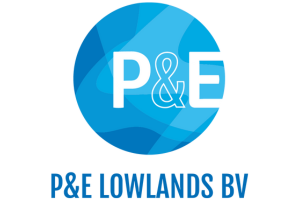
About us
Power & Energy Lowlands is a brand, representative and dealer of equipment, installations, auxiliaries and services in the field of modern power production/storage/distribution and drive systems in industrial and marine applications. P&E Lowlands focuses on advanced energy solutions, electrification, alternative fuels and power storage opportunities on the path towards a 100 % renewable future.
Our role in the project
In this collaboration, we will provide the engineering, technologies and system integration in order to realize the Living Lab in Belgium.
P&E Lowlands will work in co-operation with UWL to build in, test, evaluate and use in a real life economic environment the urban ships as “floating power supply”. P&E Lowlands delivers knowledge and equipment on shore and on the ships of an external partner Opleidingscentrum Hout en Bouw vzw (OHB) to use H2 in different application scenario’s.
Our vision for the hydrogen economy of the future
Hydrogen, more than any other fuel, has the power to replace the use of fossil fuels as an energy source. The potential for local generation and its incredibly broad applicability help us use hydrogen as a fuel for energy converters. The market is still young; we see that every day.That is why we strongly believe in the trend toward greater cooperation to make hydrogen developments successful.
Partner Description to follow
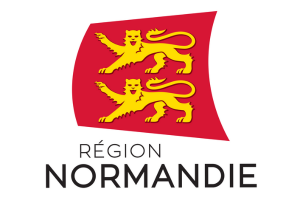 About us
About us
Normandy Regional Council is one of the local authorities created as part of the decentralisation of the French state. Its main responsibilities include economic development, regional planning and non-urban transport. Normandy is France's leading consumer of hydrogen, especially in the chemical industries. Renewable/low-carbon hydrogen was identified as a key driver to decarbonize heavy-duty mobility and to foster energy transition in Normandy. Thus, it was the first French region to formalize a dedicated hydrogen strategy in 2018.
Our role in the project
Normandy Regional Council will share its experience with its hydrogen retrofitted coach operating on its routes. With LIHYP, we will lead a study to evaluate the feasibility and conditions for converting the regional coach fleet. The Regional Council contributed in most of hydrogen project of the territory, either with connexions and funds. Then, it has a clear overview of the hydrogen projects and stakeholders in Normandy and is able to provide the platform with data. With its regional roadmap, the Region Council will be able to share its insights, its understanding of the players, feedback, and knowledge of French regulatory and strategic guidelines. The exchanges conducted as part of this project will enhance its knowledge, partnerships, and vision of the hydrogen ecosystem.
Our vision for the hydrogen economy of the future
Hydrogen is a vector for energy storage and a bridge between electricity and gas networks. It represents a response to the challenges of energy independence and security, as well as the fight against air pollution and climate change.
In our vision, low carbon and renewable hydrogen has the strong potential to decarbonize the industrial and logistics sectors, especially the chemical industry and transport in Normandy. Hydrogen has the capacity to develop a new industrial sector and create jobs, activity and attractiveness.
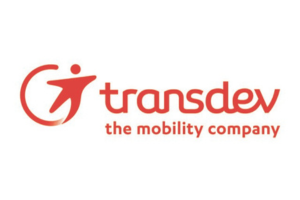
About us
Transdev is a key player in public transport. They own the first retrofitted H2 coach is Europe. As a partner of the Normandy Region, Transdev has been operating this unique H2 coach on a regular line from Rouen to Evreux since May 2024.
It has allowed Transdev to become a major operator of hydrogen mobility in Normandy thanks to its 14 buses runnng in Rouen’s urban network and to the retrofitted coach for long distance lines.
Our role in the project
In the Lihyp project, Transdev will try and understand the failures and effects of the coach at the component level through a comprehensive Failure Mode and Effect Analysis. They will realise a Life Cycle Analysis of the H2 retrofitted coach to show its viability compared to a standard solution and monitor the real time data for potential market uptake.
Transdev will participate to WP1 by sharing all the necessary data linked to their vehicule for the use of the platform, to WP2 by demonstrating their coach to the project’s partners, to WP3 by sharing their experience and lessons learnt regarding regulations and authorisations for such an innovation and to WP4 by taking part to the elaboration of the regional roadmap.
Our vision of the hydrogen economy of the future
Transdev hopes to be part and parcel of Normandy’s decarbonisation strategy by introducing a new mobility solution that offers a sustainable energy efficiency.
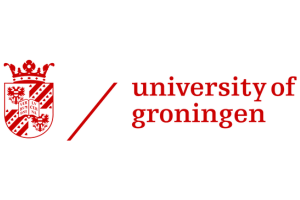
About us
Since its foundation in 1614, the University of Groningen has enjoyed an international reputation as a dynamic and innovative centre of higher education offering high-quality teaching and research. Energy transition is a strategic theme with a focused emphasis on the pivotal role of hydrogen. Green hydrogen is a promising technology to cope with the challenges posed by the transition to renewable energy sources. Our dedicated research and educational initiatives in this field play a prominent role in shaping the developments on the hydrogen economy, both locally and on a global scale.
Our role in the project
University of Groningen will perform the logistical analysis and develop the regional value chain models for the pilot deployment at Groningen Airport Eelde. The aim is to design a novel green energy/hydrogen value chain on the landside at regional airport scale. This will shape the roadmap development with the focus on the regional airport that aims to become the first hydrogen valley airport. To this end activities in LIHYP contribute to the mission of the university in conducting research that impacts society. This also supports the role of the University of Groningen in educating the workforce necessary for the energy transition.
Our vision for the hydrogen economy of the future
We envision a future where hydrogen plays a transformative role, creating a cleaner, stronger, and more efficient energy environment. Adopting hydrogen technology demands a redefinition of energy security and supply reliability standards, a redesign of the energy value chain, the development of new economic and business models, and adjustments to the existing grid infrastructure. The Northern Netherlands positions itself as a global hub for the energy transition, and as the University of Groningen, we stand united in fostering a greener and fairer energy transition and climate policy.

About us
VLBA, representing Very Large Business Application at the University of Oldenburg, stands as a dynamic force in AI, Blockchain, CRM, SCM, ERP, and Manufacturing tech. Seamlessly connecting academia and industry, we lead transformative research. From advancing AI applications to optimizing CRM/SCM processes and integrating smart. manufacturing, VLBA is at the forefront. Our close collaboration with industry partners refines innovations for tangible impact. Geared for sustained growth, VLBA remains committed to shaping the future of business technology with practical solutions.
Our role in the project
The University of Oldenburg collaborates with the Emsland Energy Hub to develop an online platform linking hydrogen providers with consumers. This platform visualizes crucial information about hydrogen providers, such as availability, capacity, price, and quality, presented on a map for easy geographical identification. The goal is to establish trust between parties, fostering increased motivation and utilization of hydrogen resources.
Our vision for the hydrogen economy of the future
Given the geopolitical landscape and the limited gas resources in Europe, hydrogen is poised to become the cornerstone of the region's energy future. Increased investments and governmental support would ease entry for new hydrogen providers, mitigating risks. However, the sustained success of this transition relies on establishing and sustaining a robust demand. By presenting a transparent, reliable view based on accurate information, we anticipate fostering trust among users, encouraging broader market participation. As supply and demand dynamics grow, competition will intensify, leading to reduced prices and ultimately flourishing the hydrogen market.
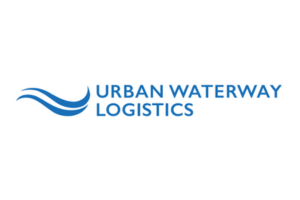
About us
UWL is a consortium of companies, governmental and non-governmental, and educational organizations in the field of the promotion of the use of IW, regional, and sustainable city distribution. This quadruple helix approach gives us the possibility to check information on the subject, set up pilots, and conduct demonstrations. We also focus on research into energy applications for vessels, such as testing with H2, electric propulsion, etc., with a view to making the logistics flow sustainable. As we have PV installations with our members, we study the possible use of hydrogen.
Our role in the project
UWL will build a Living Lab in Belgium about the application scenarios and use cases, together with P & E Lowlands. It contains instructions on how to design a pilot with the electrical vessel and cargo bikes and organize the field test. UWL will deliver warehouses, warehouse facilities, urban vessels, and cargo vehicles to WP 1 for the use cases and collect data and results.Adaptation of the urban vessel will be necessary to set up the pilot with different types of cargobikes. - On-board storage batteries and inverters (supplying equipment and installation by PELL) will be installed on the urban ship Green Wave and tested in a real-life economic environment. Demonstrations will show how to use H2 as a power supply for industrial applications.
Our vision for the hydrogen economy of the future
Hydrogen has been used to power internal combustion engines for more than 200 years and is now a crucial component in the refining industry. Non-polluting, easily stored, high-energy density, and doesn't contribute to global warming. To aid in sustainable energy transitions, hydrogen must be employed in transportation, construction, and electricity generation. The Future of Hydrogen is an in-depth, objective analysis of hydrogen that details the current state of affairs, the ways in which hydrogen could contribute to a future of clean, secure, and cost-effective energy, and the steps necessary to bring that promise to fruition.

About us
WaterstofNet is a knowledge and collaboration platform. We aim to contribute to a carbon-neutral society by supporting and realising hydrogen projects in Flanders and the Netherlands. Together with the industrial sector and the government, we enable concrete achievements in the field, laying the basis for further collaboration. By doing so, we assist in the further development of Flanders and the Netherlands as leaders in hydrogen.
Our role in the project
WaterstofNet participates in the LiHYP project by:
- setting up and implementing a hydrogen platform/market place for the North Sea Region;
- supporting the Belgian pilot in developing a hydrogen demonstrator;
- developing an integrated RCS framework for the North Sea Region;
- realising an interregional, dynamic hydrogen roadmap for the North Sea Region.
Our vision for the hydrogen economy of the future
Sustainable hydrogen will play a key role in the decarbonisation of our community. It can contribute to zero-emission transport and function as a sustainable raw material for industry, as a means of energy storage and a carbon-free source for heat. Flanders and the Netherlands host a unique value chain of companies and research institutes that are active in the field of hydrogen. As a knowledge and collaboration platform, WaterstofNet acts as a catalyst for this ecosystem in the further realisation of a hydrogen economy.

